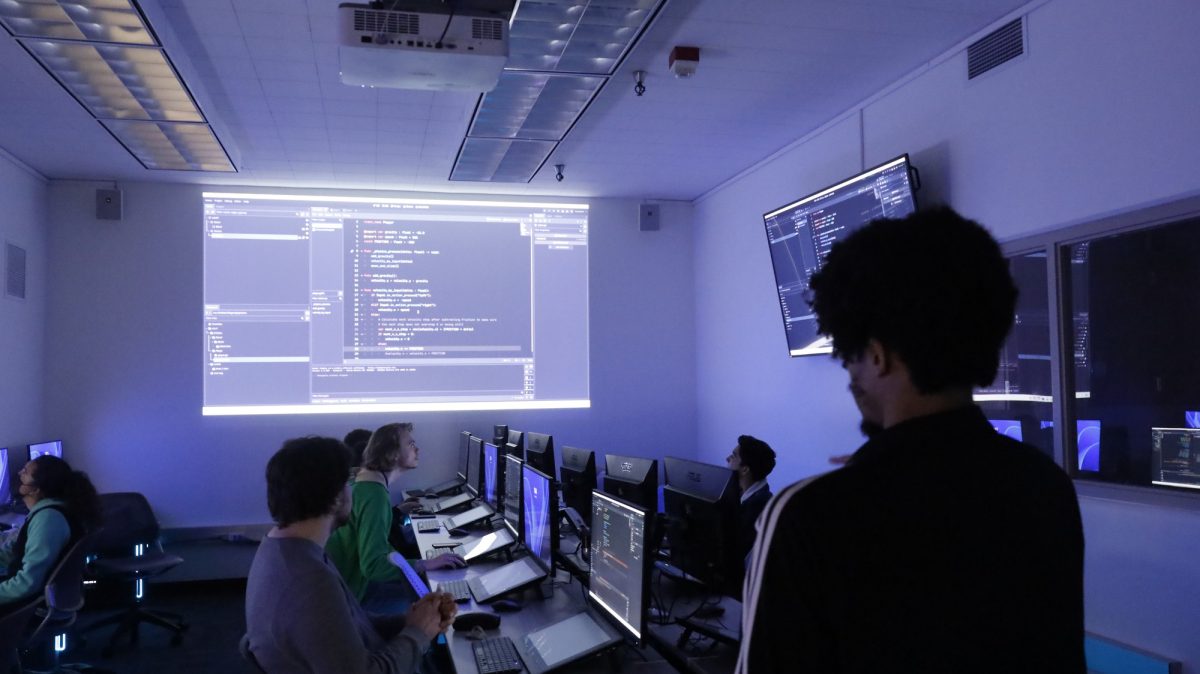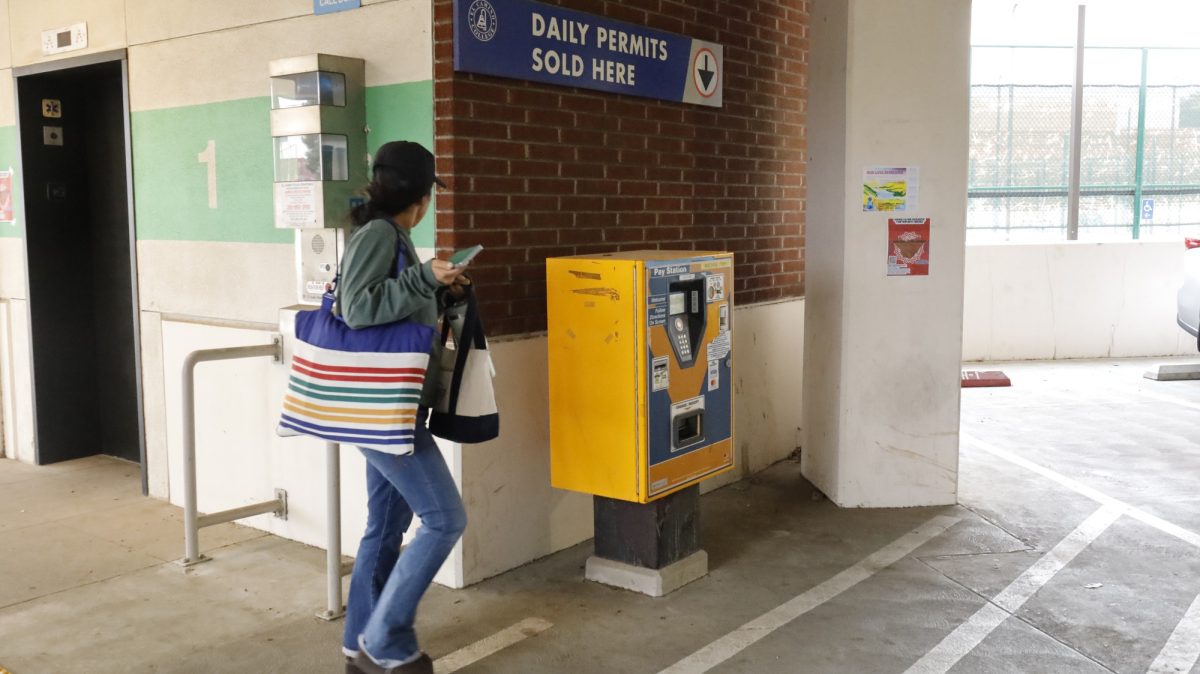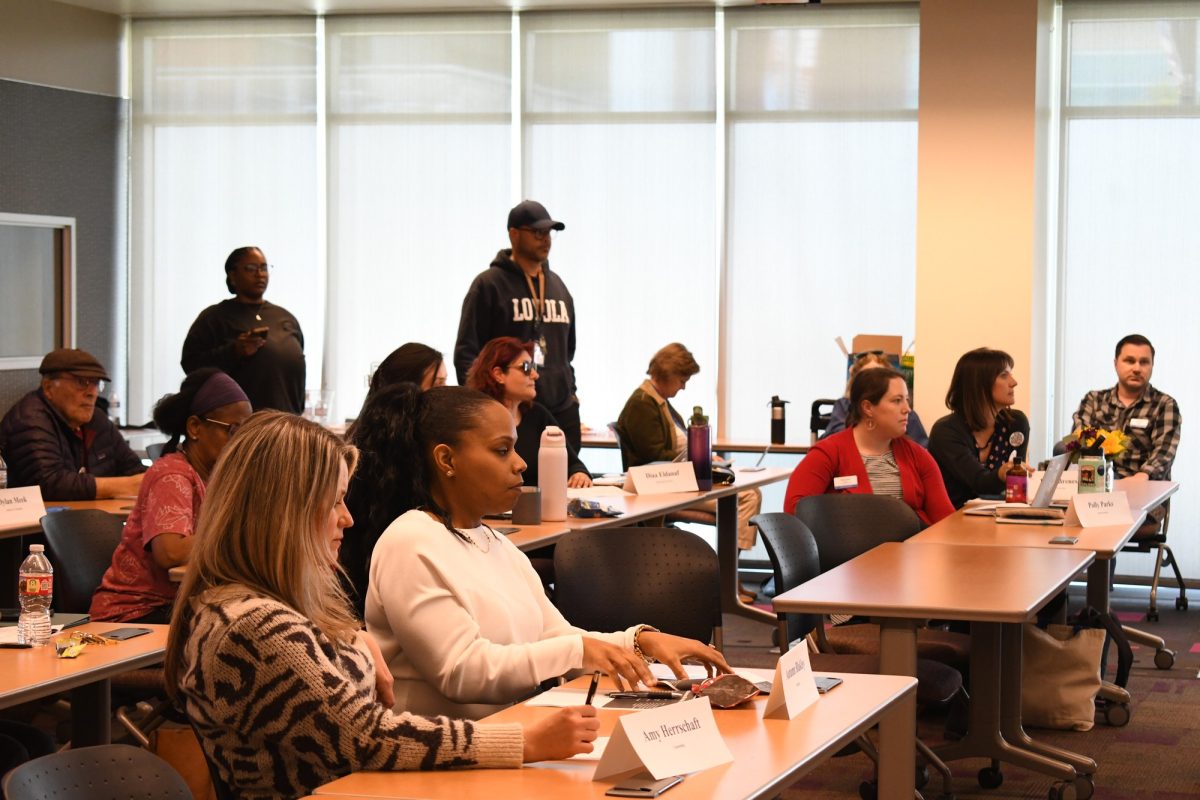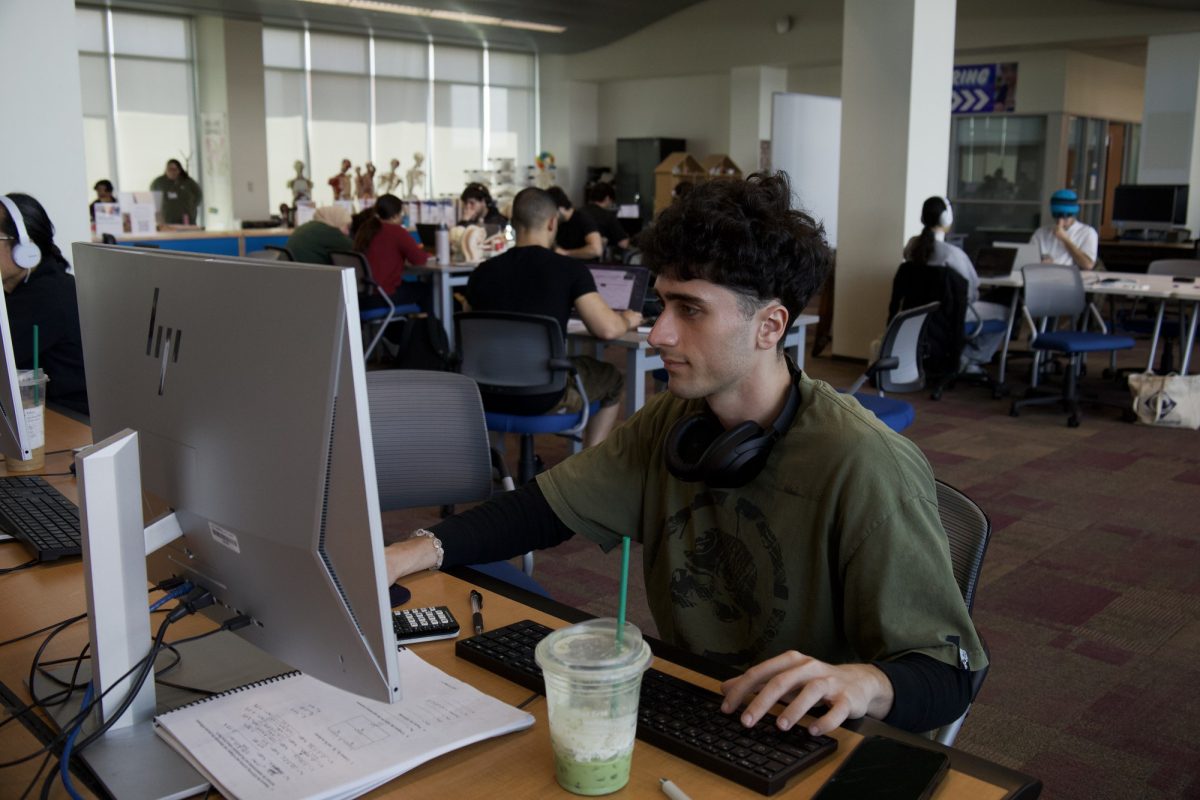Social networking is taking over.
Individuals are constantly checking emails, texts and social networks to stay tuned into their social life with the latest news and gossip.
“Social networks are addictive. They are dumb and making society stupid too. It’s a false reality where people go to be fake,” Ifeanyi Shaheem, 18, business major, said.
Though it can be convenient to receive fast and easy connections through social networks, it can hinder the way individuals communicate with others in persons and prioritize work habits.
Logged on to social networks, Asanti Jensen, 18, undeclared, said, “Two hours interrupts studying time. It’s a distraction. It’s become a cultural component and now is a trend not just used to pass the time but now is the main focus for students.”
Although there are lots of people who have social networks, some do not have any at all.
“I don’t have a Facebook, Tumblr, or Twitter. It’s just not my thing. I might but probably wont,” Moriah Harris, 18, business major, said.
Nevertheless, some individuals who have used a social network previous to being “anti-Internet” have experienced some type of a dislike to Internet interactions.
“I had a twitter, then I realized it was stupid and I could be doing better things. It’s too addictive,” Shaheem said.
Students that use Facebook, Twitter, Tumblr and Instagram to connect with one another, but would be more likely to have lower grades according to an article on Social Networking as they log on a number of times during the day to pass the time.
According to Pew Internet, 72 percent of Latinos/Hispanic, 83 percent of 18-29 year olds and lower urban income areas hold higher percentage of people who use social networks.
Each social network has a different purpose and way to communicate with others, but they all allow individual to share information with one another faster.
Individuals make accounts to keep up with people they know, interact with mutual friends and network for school, business or pleasure.
“I like the party invites that you get form other people and having the ability to post pictures and share that,” Jensen said.
There are parts of social networking that are enjoyable but problematic. Nonetheless, there are different experiences for different people.
When it comes to social networking, some students believe that learning how to privatize and censor the things posted are important. Most colleges and jobs search these sites to weed out individuals for admission or positions based on what they see over the Internet according to the Social Networking website.
“You have to put some information privately. If you have a picture and delete it, it will stay connected on the Internet for at least four years,” Jensen said.








